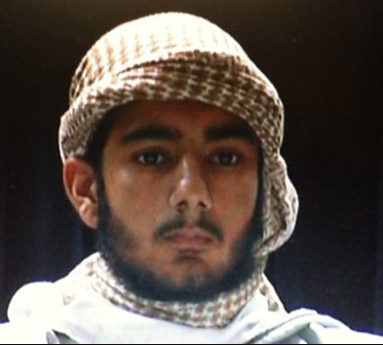
I recently completed my training in Prevent strategies through the National College of Policing. There I found a deep and balanced concern for young people who can be misled and radicalized in their loyalties to the detriment of their basic humanity. I returned to that material this weekend on hearing of the second atrocity on London Bridge because I was aware that he had apparently completed a successful process of “deradicalization” in prison. Secondly, one of his victims was a young lawyer (Jack Merritt) who was developing strategies to prevent re-offending.
Why, after an apparently successful intervention did Usman Khan go on to re-offend so quickly and in so spectacular a fashion? How is it that a teenager such as Usman could be so deeply damaged that he was locked into a behaviour pattern that resisted the best efforts of the prevent strategy?
The prevent policy rightly identifies some of the underlying issues that dispose young people to radicalization:
1. A poor sense of identity
2. A lack of meaning in life
3. A weak sense of belonging
4. A feeling of low status
5. An unusual desire for change
6. A desperation for excitement and risk
7. Family involvement in extremism
8. A desire to control others
9. Problems with mental health
10. A feeling of being under threat[i]
The list is worth reflecting on since the first many items might apply to any adolescent, at least for a time. Adolescents are particularly vulnerable to radicalization because they are searching for belonging, for an ideal and for personal meaning in their lives. The failure of our own culture, and of religion, to fill some of these needs is a factor leading young people to engage in radical activity. Encouraging healthy religion is one way to prevent radicalization in young people. Healthy religion can build resilience to extremism by providing a sense of dignity to human life, providing a pathway to meaning, building self-esteem, celebrating community and creating opportunities to engage in practical action for change. One thing that religious leaders need to emphasise is that there is a positive side to the word radical. Gandhi was a radical, Oscar Romero and Jesus were both radical activists. These, and many others, sought to change their communities from within and did so radically but did so within the framework of a traditional moral code. That Christian moral code is still the foundation of what the prevent strategy calls British values in its documentation. These values listed by OFSTED[ii] include:

The rule of law
Democracy
Individual liberty
Mutual respect and tolerance of different beliefs
These are clearly important values and their slow emergence in British history gives them a cultural logic on which most people now agree. When they are breached by individuals like Usman Khan or by governments there is a general understanding that damage has been done to the community and sanctions must follow. What seems to be missing from the list is a sense of community, which provides the belonging that protects against radicalization. An over-emphasis on the individual can lead to the marginalization of groups and individuals who may then be drawn to simplistic groupings focused on anarchic change fueled by anger.
In my view, it is unlikely that prevent strategies will be enough to manage this edge of anarchy in our society. What is needed is a greater sense of interdependence so that wider and more open networks can be sustained. The formation of groups that develop their identity only as an opposition to the wider community inevitably lead to a dehumanizing of the majority of the population which insulates perpetrators from the impact of their crimes.
In our Salesian tradition the four values of RUAH (respect understanding affection and humour) stand as an antidote to extremism.
· Respect because it emphasises the sacredness of each life
· Understanding because we need to be less afraid of differences
· Affection because kindness can break through the barriers we put around ourselves
· Humour because it defuses the fatal intensity that leads to extremism
The word RUAH means breath or spirit. It has a shared root in Arabic and Hebrew scripture and challenges us all, even if we are Islamists or white supremacists, to listen for that breath of the spirit within that makes us human and is the true source of a community that can deradicalize our world.
[i] Drawn from the National College of Policing Training module available here: http://course.ncalt.com/Channel_General_Awareness/01/index.html
[ii] See OFSTED web guidance at: http://www.doingsmsc.org.uk/british-values/


Yorumlar